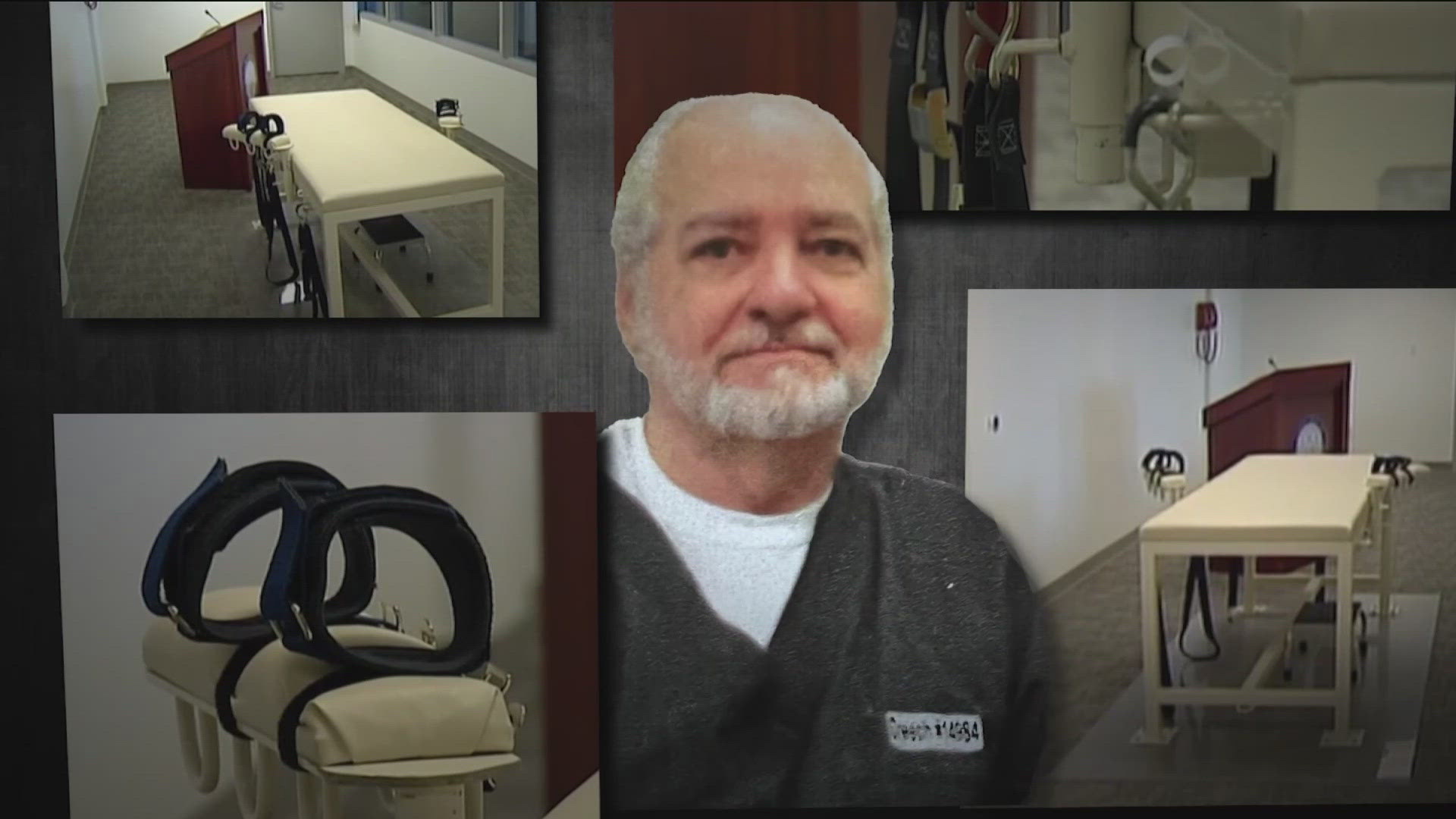BOISE, Idaho — After a failed execution in February, Idaho's longest-serving death row inmate said a second attempt to execute him would be "cruel and unusual punishment" - violating his Eight Amendment rights.
Thomas Creech's attorneys and the state presented arguments during an Aug. 29 hearing over whether a court should decide if a second execution attempt is off the table.
Creech's attorneys initially filed their petition weeks after the failed execution, stating their client suffered psychological trauma related to the events - but the state said there are no grounds to vacate the death penalty.
State prosecutor Dayton Reed argued that during the first execution attempt, the Idaho Department of Correction staff did not intend to cause "intentional, unnecessary or malicious pain" and that the Eighth Amendment protects someone from malicious pain - but not a painless death.
Prosecutors also said Creech was not "biologically incapable" of being executed.
As previously reported, Creech's execution failed in February when IDOC staff failed to access Creech's veins after eight attempts. Judge Jason Scott said he had a "core concern" that the same procedures during a second execution could lead to the same outcome.
The state also argued the firing squad - now legal in Idaho - can be used if lethal injection isn't an option.
Creech's attorney, Garth McCarty, argued that isn't practical since IDOC hasn't built a facility to carry out a firing squad execution.
The attorney also said Creech suffered trauma during the execution, when he laid on the execution table for almost an hour while doctors tried to establish the IV line.
Creech's attorney said "pain was inflicted" during the process and that Creech suffered trauma while waiting to see if and how a second execution would happen.
Both sides cited a 1947 precedent from State of Louisiana ex rel. Francis v. Resweber where, in a split decision, the U.S. Supreme Court decided a second execution attempt did not violate the Eight Amendment in the case of a 17-year-old from Louisiana named Willie Francis - who had the electric chair malfunction during his execution. Creech's attorney argued the "standards of decency" have evolved in the 77 years since that decision came down.
A similar situation recently played out in Alabama. The original execution of Kenneth Smith by lethal injection failed, and after an unsuccessful appeal to SCOTUS, he was executed by nitrogen hypoxia earlier this year.
Although no decision was made during the hearing, the judge said a decision would be issued in a timely manner.

